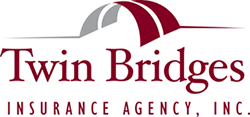When you start a business, it is likely that you will be considered a high risk individual. Over time, insurance companies will consider your loss ratio and the details of your claims when they are determining the business insurance premiums that you will need to pay for your coverage.
What is a Loss Ratio?
Before you can understand how it impacts your premiums, you must recognize what the ratio is and how it is calculated. The ratio refers to the amount of money that the insurance company pays out to the business in claims when compared to the amount that the company is paid. For example, if you pay $100 per month and your total claims over the year add up to $600, then you would have a loss ratio of 50 percent for the full year. The company made $1200 from your premiums, but paid out $600 in claims, resulting in a profit of $600.
How it Impacts Your Premiums
The reason that the ratio impacts your premiums is the risk assessment. If you have a history of a higher-than-average ratio when compared to other businesses within the same industry, then you can expect to pay more to the company because of your claims.
Furthermore, you can expect to pay more when you have a high ratio over a particular year, even if you have a low ratio over the course of several years prior to the current time.
Ratios, statistics and average data help insurance companies identify the amount of risk that comes with protecting your business. Ideally, you want to have a low or reasonable ratio to get the best rates. Contact us to speak to an agent to learn more about your options and the policies that are appropriate for your business.








 Click to Call
Click to Call Get Directions
Get Directions